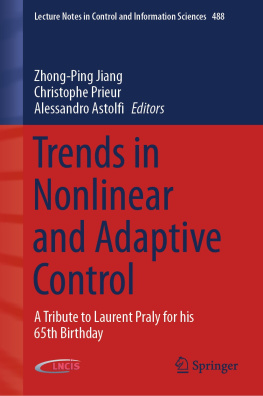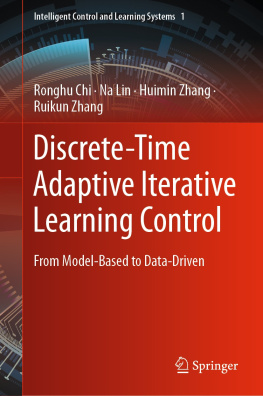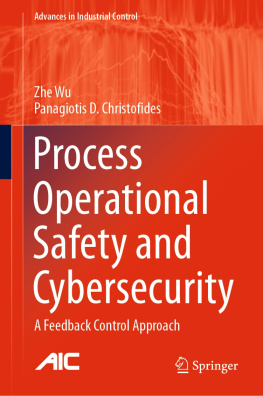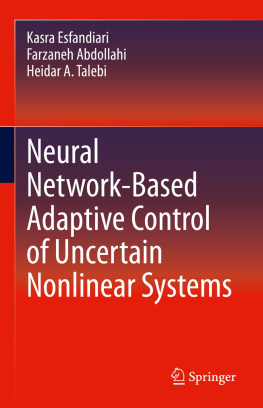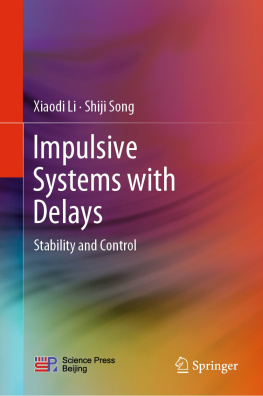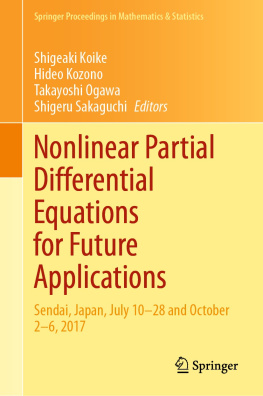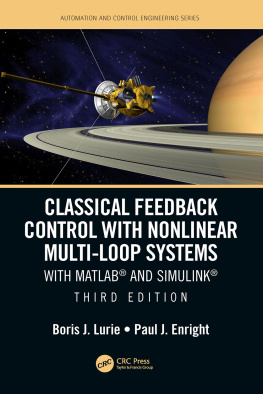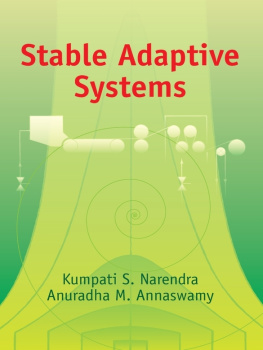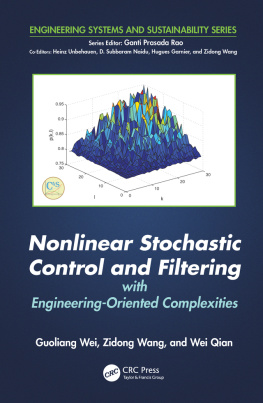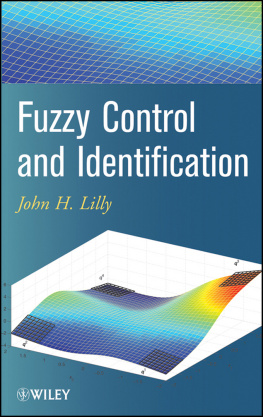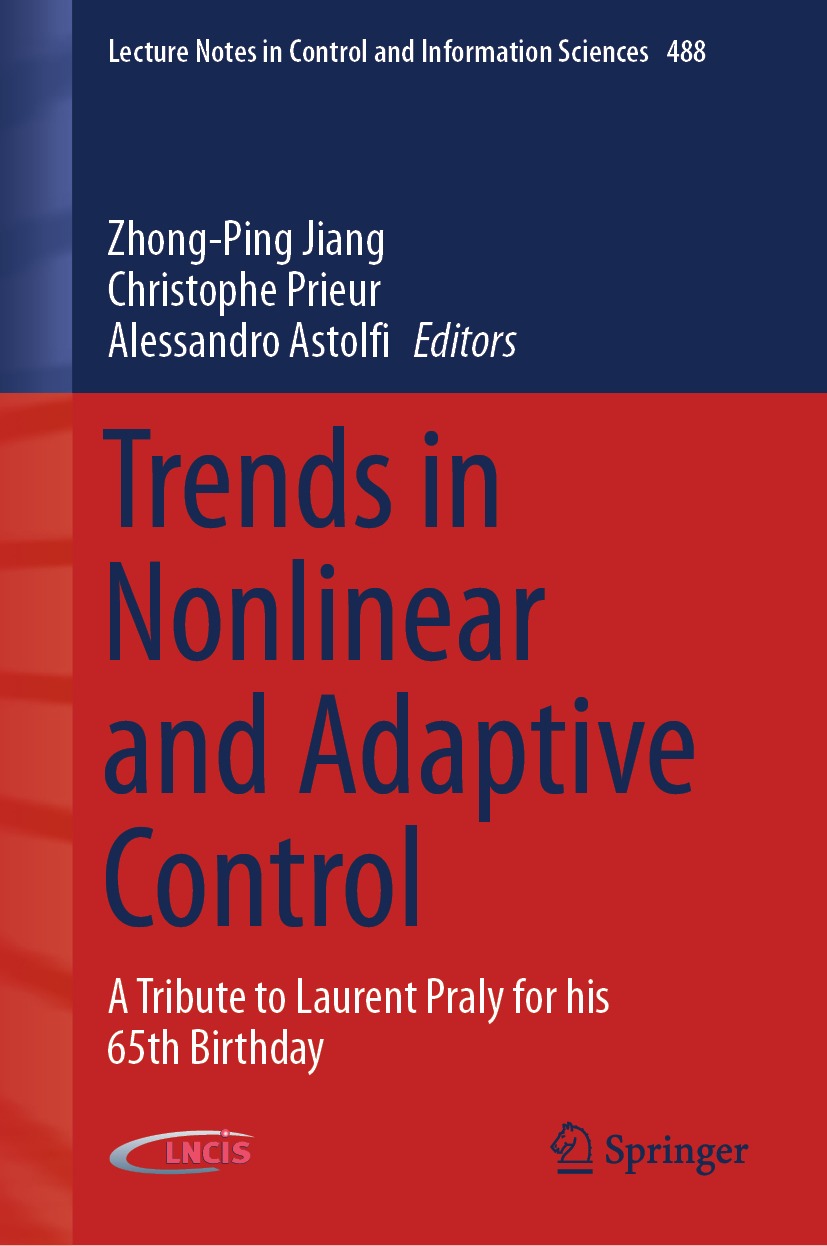Volume 488
Lecture Notes in Control and Information Sciences
Series Editors
Frank Allgwer
Institute for Systems Theory and Automatic Control, Universitt Stuttgart, Stuttgart, Germany
Manfred Morari
Department of Electrical and Systems Engineering, University of Pennsylvania, Philadelphia, USA
Advisory Editors
P. Fleming
University of Sheffield, UK
P. Kokotovic
University of California, Santa Barbara, CA, USA
A. B. Kurzhanski
Moscow State University, Moscow, Russia
H. Kwakernaak
University of Twente, Enschede, The Netherlands
A. Rantzer
Lund Institute of Technology, Lund, Sweden
J. N. Tsitsiklis
MIT, Cambridge, MA, USA
This series reports new developments in the fields of control and information sciencesquickly, informally and at a high level. The type of material considered for publication includes:
Preliminary drafts of monographs and advanced textbooks
Lectures on a new field, or presenting a new angle on a classical field
Research reports
Reports of meetings, provided they are
(a) of exceptional interest and
(b) devoted to a specific topic. The timeliness of subject material is very important.
Indexed by EI-Compendex, SCOPUS, Ulrichs, MathSciNet, Current Index to Statistics, Current Mathematical Publications, Mathematical Reviews, IngentaConnect, MetaPress and Springerlink.
More information about this series at http://www.springer.com/series/642
Editors
Zhong-Ping Jiang , Christophe Prieur and Alessandro Astolfi
Trends in Nonlinear and Adaptive Control
A Tribute to Laurent Praly for his 65th Birthday
1st ed. 2022

Logo of the publisher
Editors
Zhong-Ping Jiang
Department of Electrical and Computer Engineering, New York University, Brooklyn, NY, USA
Christophe Prieur
Automatic Control, CNRS, Saint Martin dHeres, France
Alessandro Astolfi
Department of Electrical and Computer Engineering, Imperial College London, London, UK
ISSN 0170-8643 e-ISSN 1610-7411
Lecture Notes in Control and Information Sciences
ISBN 978-3-030-74627-8 e-ISBN 978-3-030-74628-5
https://doi.org/10.1007/978-3-030-74628-5
Mathematics Subject Classication (2010): 34H05 34K35 37N35 49L20 49N90 93C10 93C20 93C35 93C40 93C55 93C73 93D05 93D25
MATLAB is a registered trademark of The MathWorks, Inc. See https://www.mathworks.com/trademarks for a list of additional trademarks.
The Editor(s) (if applicable) and The Author(s), under exclusive license to Springer Nature Switzerland AG 2022
This work is subject to copyright. All rights are solely and exclusively licensed by the Publisher, whether the whole or part of the material is concerned, specifically the rights of translation, reprinting, reuse of illustrations, recitation, broadcasting, reproduction on microfilms or in any other physical way, and transmission or information storage and retrieval, electronic adaptation, computer software, or by similar or dissimilar methodology now known or hereafter developed.
The use of general descriptive names, registered names, trademarks, service marks, etc. in this publication does not imply, even in the absence of a specific statement, that such names are exempt from the relevant protective laws and regulations and therefore free for general use.
The publisher, the authors and the editors are safe to assume that the advice and information in this book are believed to be true and accurate at the date of publication. Neither the publisher nor the authors or the editors give a warranty, expressed or implied, with respect to the material contained herein or for any errors or omissions that may have been made. The publisher remains neutral with regard to jurisdictional claims in published maps and institutional affiliations.
This Springer imprint is published by the registered company Springer Nature Switzerland AG
The registered company address is: Gewerbestrasse 11, 6330 Cham, Switzerland
to Laurent,
a friend and a continuous source of inspiration
Preface
This book is a tribute to
Laurent Praly
on the occasion of his 65th birthday. Throughout his 40 year career Laurent has contributed ground-breaking results, has initiated research directions, has laid the foundations of adaptive control, nonlinear stabilization, nonlinear observer design, and network systems, and has motivated, guided, and forged students, junior researchers, and colleagues. In addition, he has been a driving force for the intellectual and cultural growth of the systems and control community worldwide.
The volume collects nine contributions written by a total of seventeen researchers. The leading author of each contribution has been selected among the researchers who have worked or interacted with Laurent, have been influenced by his research activity, or have had the privilege and honor of being his Ph.D. students. The contributions focus on two foundational areas of control theory: nonlinear control and adaptive control, in which Laurent has been an undisputed top player for four decades. The diversity of the areas covered and the depth of the results are tangible evidence of Laurents impact on the way control problems are currently studied and results are developed. Control would be a very different discipline without Laurents vision and without his ability to push the boundaries of what is known and achievable. Laurents papers are timeless: the results therein are fundamental and are never superseded by more advanced or newer results. They constitute cornerstones upon which generations of control theorists will build. Similarly, practitioners and industrialists have greatly benefited from Laurents engineering ingenuity and tools.
As anticipated, the contributions in the book reflect important areas which have been pioneered and influenced by Dr. L. Praly, as detailed hereafter.
It has been known since a long time that invertible MIMO nonlinear systems can be input--output linearized via dynamic state feedback. However, the techniques originally developed to achieve this design goal are fragile, as they require the availability of an accurate model of the plant and access to the full state. Very recently, a robust version of these techniques has been developed, by means of which a linear input--output behavior can be approximated up to any arbitrarily fixed degree of accuracy. As a byproduct, for a strongly minimum phase invertible MIMO system, these techniques provide a robust stabilization paradigm, which can be also used in wider contexts, for instance, to simplify the solution of a problem of output regulation. The chapter , by A. Isidori and Y. Wu, reviews the techniques in question and their application to the design of output regulators.
The chapter , by A. Teel, considers using a differential inclusion, instead of a hybrid system, to effectuate a linear control system with resets. In particular, it establishes global exponential stability for the differential inclusion when the hybrid version of the reset control system admits a strongly convex Lyapunov function that establishes stability.

